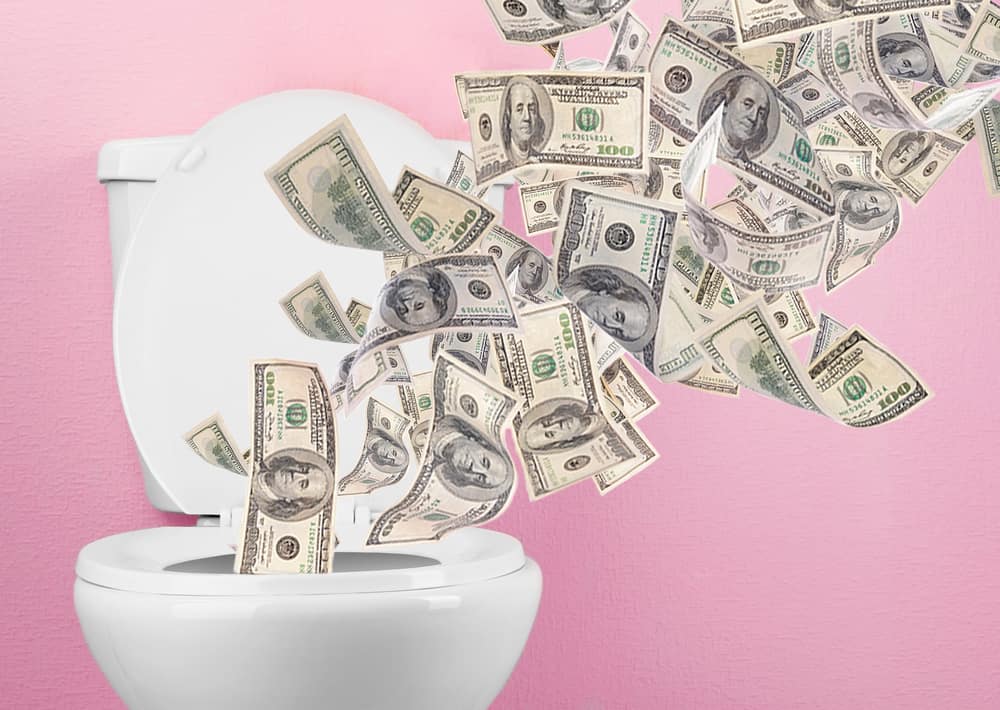In the unique realm of fecal donations, people are discovering a fruitful side activity that not only offers an extra source of income but also contributes significantly to scientific research and potentially life-saving treatments. Companies such as Human Microbes, GoodNature, and BiomeBank, are beckoning healthy individuals to contribute their stool samples, utilized in fecal microbiota transplants for aiding individuals battling inflammatory bowel disease or gastrointestinal disease. Your excellent health, regular bowel movements, balanced weight, and minimal antibiotic usage could qualify you as a donor, and ensure a tidy sum for regular donations – ranging from $40 to $50 per donation to over $1,500 monthly, depending upon the organization and commitment. Further, it's worth noting that some organizations may require donors to follow a specific diet and lifestyle, making the journey fascinating and enriching in its own right. So, let's explore this interesting, and surprisingly rewarding world, with immense potential to improve lives.
Table of Contents
Understanding Fecal Donations
Fecal donations, or selling poop, have gained significant attention in recent years. Though it might sound a little unconventional, it's become quite a lucrative side activity for many individuals.
The concept of selling poop
Fecal donation revolves around the idea of selling healthy and disease-free fecal samples to scientific research organizations or medical institutions, who then use these samples for various purposes like the development of treatments or medical procedures. This practice isn't just a simple exchange of bodily waste for cash. It involves a deep understanding of the potential contributions that such samples can make to scientific research and the medical world.
Role of fecal donations in medical and scientific research
Fecal donations play an invaluable role in medical and scientific research. It's believed that our gut microbiota, the diverse population of microbes residing in our digestive tract, plays a crucial role in maintaining our overall health. Research is underway to fully understand this link, but it's clear that a healthy gut contributes to a healthy individual. Fecal donations help researchers study and understand the complexity of our gut microbiota, open new possibilities for treatments, and moreover, they're used in procedures like fecal microbiota transplants.
Leading Companies in the Fecal Donations Industry
Various organizations have entered the fecal donations industry. These include Human Microbes, GoodNature, and BiomeBank.
Overview of Human Microbes
Human Microbes is known to pay up to $500 per qualifying stool. They have an integrated approach, focusing on the richness and diversity of the human gut microbiome. With the help of fecal donations, Human Microbes aims to develop more effective and individualized treatments for a variety of health conditions.
Role of GoodNature in the industry
GoodNature is an organization that stands out with its generous offer of up to $1,500 per month for regular donations. GoodNature acknowledges the value of maintaining a diversity of healthy stool samples for use in ongoing research.
Introduction to BiomeBank and their operations
BiomeBank, like other organizations in the sector, immensely values fecal donations from healthy individuals. Their operations revolve around making the process of donation as straightforward and hassle-free as possible, encouraging more people to participate and contribute to this field.

Applications of Fecal Donations
The applications of fecal donations range from research purposes to practical applications in the form of treatments for various illnesses.
Fecal microbiota transplants explained
Fecal microbiota transplants (FMT) are among the significant purposes for which fecal donations are used. In FMT, a healthy donor's stool is prepared and transplanted into a patient's intestine, intending to reconstruct a healthy gut microbiota. This procedure has shown positive results in treating certain diseases.
Treating inflammatory bowel and gastrointestinal diseases with fecal donations
Patients suffering from inflammatory bowel disease or gastrointestinal disease stand to benefit greatly from fecal microbiota transplants. This medical procedure restores the healthy gut microflora, which can alleviate the symptoms of these diseases and potentially lead to long-term remission.
Other potential applications in medical treatments
While restorative treatments for bowel disorders constitute a prime application, fecal donations are being researched for their potential use in various other health conditions, including obesity, diabetes, and even mental health disorders like depression.
Financial Aspect of Fecal Donations
Apart from the noble cause of contributing to medical advancements, fecal donations also offer a financial incentive to donors.
How much individuals can earn from stool donations
Depending on multiple factors, including the organization, stool donors can earn from $40 to $50 per donation or over $1,500 monthly for daily donations. Such payouts definitely make fecal donations an attractive option for many.
Comparison of payout rates among major companies
While the payout rates may vary among companies, the substantial figures offered by leaders in the industry like Human Microbes and GoodNature surely set a high bar. Human Microbes, as aforementioned, pays up to $500 for qualifying stool samples, whereas GoodNature offers up to $1,500 per month for regular donations.
Potential for regular income through monthly donations
Given these promising figures, it seems feasible to see stool donations as more than just a one-time transaction. Regular stools donors can use this as an avenue for a consistent secondary income stream.

Qualifying as a Stool Donor
Though it might seem that anyone can become a stool donor, there are several health considerations to keep in mind.
General health requirements for stool donors
The most fundamental requirement for potential stool donors is to be in atypical or exceptional health. After all, the primary motive of fecal donations is to procure healthy fecal samples for research and treatments.
Importance of regular bowel movements and minimal antibiotic use
A healthy digestive system, as exhibited by regular bowel movements, is another requirement for potential stool donors. Moreover, the system should be free from any potential complications due to minimal antibiotic use. Antibiotics can alter gut flora, potentially impacting the donor stool's value.
Weight considerations and why they are important
Weight considerations also come into play when becoming a stool donor. Overweight or obese individuals may be excluded, as research suggests that their gut flora might differ significantly and may even contribute to their excess weight.
Process of Becoming a Stool Donor
Becoming a stool donor is typically a streamlined process, involving checking qualifications, applying online, and finally, submitting a stool sample.
Checking qualifications for donation
Checking whether you meet the vital health requirements set by the organization is the first step into the process. This usually involves answering a detailed questionnaire regarding your lifestyle habits, diet, health history, medication use, etc.
Applying online for donation
If you meet the health standards, you can move ahead with the application process, which generally involves filling in an online application form. This form chiefly asks for your basic details and allows you to express your interest in becoming a donor.
Submitting a stool sample and what happens next
After the successful submission and review of your application, you'll be asked to submit a stool sample. This sample undergoes extensive testing to ensure it's rich in healthy gut microbiota and free from any harmful pathogens or abnormalities.

Contributions Beyond Monetary Benefits
Being a stool donor is not just about the extra money you can make. It also represents a far-sighted contribution to scientific research and lifesaving treatments.
Contribution to scientific research
When you donate your stool, you're directly contributing to the efforts to push the boundaries of our current scientific understanding, especially concerning the human gut microbiome. With every donation, you're helping researchers uncover new aspects and potential treatment options.
Role in potentially lifesaving treatments
Moreover, your donations play a primary role in facilitating FMT, a potentially lifesaving treatment for patients with severe digestive tract issues. FMT renews and maintains a healthy gut flora, thus potentially bringing substantial relief to these patients.
Benefits to the donor community and society
Being a stool donor, you can take pride in your significant contribution that adds value not just to the donor community but also to society. You're becoming an essential link in the chain that could bring relief to many suffering from debilitating illnesses and advance medical research.
Income Potential from Fecal Donations
More than just a side hustle, fecal donations can offer potential regular income for donors.
Earning potentials per donation
The earning potential per donation ranges but can easily reach from $40 to $50.
How monthly donations can boost income
Donating regularly can boost your earnings considerably. For instance, organizations like GoodNature providing generous rates of up to $1,500 per month for regular donations.
Comparison of earning potential across different organizations
The earning potential across different organizations depends on their specific payouts. However, it's clear that becoming a regular stool donor could represent a significant income source for many.

Requirements Set by Organizations
Organizations have strict requirements for individuals looking to become donors.
Overview of specific diet and lifestyle requirements
Organizations pay particular attention to the diet and lifestyle habits of potential donors. This includes a detailed overview of dietary habits, lifestyle choices, and other personal factors that may influence the gut microbiome's state.
Need for a regular exercise schedule
Regular physical activity is highlighted as an important requirement for donors. Exercise has been tied to better gut health and diversity, making it a desirable trait in potential stool donors.
Importance of a fiber-rich diet and adequate hydration
Eating a fiber-rich diet and staying properly hydrated are also highly essential criteria. Fiber is associated with better gut health and regular bowel movements, while proper hydration helps maintain optimal digestive health.
Projections for the Fecal Donations Industry
The fecal donations industry is certainly a fascinating one, and it has undeniable potential growth and developments to watch for in the future.
Potential growth and developments in the market
With more research and gradually increasing public awareness about the importance of gut health, the market for fecal donations is set to grow robustly. More individuals are expected to come forward to become donors, and more organizations will likely enter this space.
Challenges facing the industry
However, the industry does face its share of challenges. These include dealing with the public's natural reluctance or aversion towards the idea of fecal donations and stringent regulatory guidelines for fecal donations and transplants.
Impact of scientific advancements on the industry
Advancements in the science of gut microbiota will have a direct impact on the industry. As we understand more about our gut's link with our overall health, demand for healthy stool samples might surge, pushing the industry into new spaces and possibilities.








